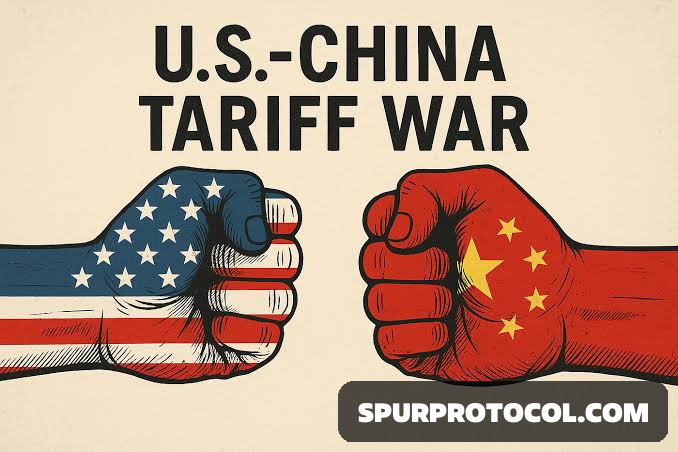Tariff War And Its Impact On Cryptocurrency: A Modern Economic Shift
Tariff wars are back in the headlines and they’re not just affecting traditional markets anymore. As global powers impose taxes on imports and retaliate with their own tariffs, ripple effects are being felt across economies. But one sector that reacts fast and sharp? Cryptocurrency.
Go Back

🕒 2:59 PM
📅 Apr 12, 2025
✍️ By Karell
What is Tariff War?
A tariff war happens when countries impose taxes (tariffs) on imported goods to protect their domestic industries. If the targeted country retaliates with its own tariffs, a back-and-forth economic conflict begins.
Historically, tariff wars have led to higher consumer prices, disrupted supply chains, and slowed down global trade. But in today’s digital economy, their effects are far more layered—especially with decentralized finance (DeFi) and blockchain tech in the picture.
The Current Tariff Landscape (2024–2025)
Recent developments have triggered a fresh wave of trade tensions:
- The US and China are once again at odds over tech and rare earth exports.
- The EU and US are introducing tariffs on green tech components.
- India, Brazil, and Southeast Asia are retaliating against Western subsidies and market restrictions.
This geopolitical pressure is forcing businesses to reconsider supply chains, pushing up costs, and introducing volatility into traditional stock markets.
How It Affects Global Markets
Currency Fluctuations - Trade tensions usually hurt fiat currencies. When a country’s exports fall, its currency can drop in value, causing inflation and capital flight.
Investor Uncertainty - Stock markets tend to dip during tariff standoffs. Investors move assets into safer havens.
Global Inflation - Tariffs make imports more expensive. These costs often get passed down to consumers, stoking inflation worldwide.
Cryptocurrency as a Hedge
This is where crypto enters the picture. Digital assets like Bitcoin, Ethereum, and stablecoins are increasingly seen as alternatives when traditional systems show stress.
Why Crypto Gains Traction During Tariff Wars:
Decentralization - No government control, no direct impact from trade tariffs.
Borderless Transfers - Easier cross-border payments without SWIFT or banking delays.
Store of Value - Like gold, Bitcoin is becoming a “flight-to-safety” asset during crises.
Stablecoins & CBDCs - Businesses in high-tariff regions use USDT or USDC to avoid currency volatility.
What It Means for Crypto Users
Volatility increases, which means higher risk but also more opportunity.
Demand for stablecoins and BTC rises in tariff-affected regions.
More governments tighten crypto regulation to maintain capital controls.
DeFi could grow, as users and businesses seek non-traditional finance tools.
